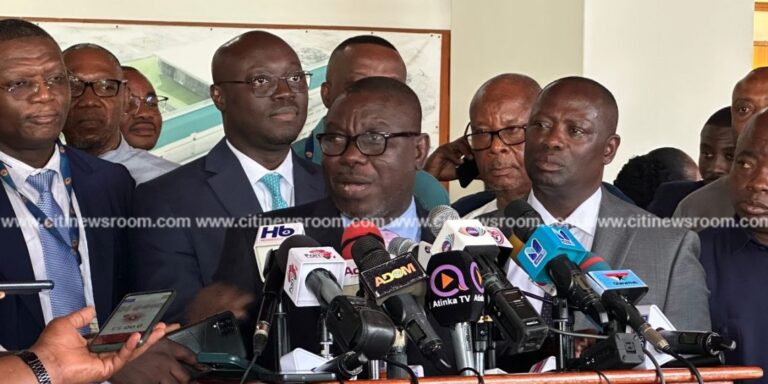The Minority in Parliament has strongly urged the government to undertake a significant restructuring of the ailing National Investment Bank (NIB) in order to prevent the bank’s potential liquidation.
Recent reports have indicated the possibility of the Agricultural Development Bank (ADB) acquiring NIB, which currently carries liabilities exceeding GHc2 billion.
During a press conference held on Thursday, September 28, Isaac Adongo, the Ranking Member of Parliament’s Finance Committee, voiced concerns about the potential ramifications of allowing a systematically important bank like NIB to collapse.
Adongo emphasized that there is a viable alternative to the bank’s predicament, suggesting that the government restructure NIB’s balance sheet by converting all NIB debts owed to the government into equity.
“We said that the government should just restructure the balance sheet of NIB to swap all the NIB debts that it owes the government and give the government equity but the government says it doesn’t have money to capitalise the bank but it has given 500 million bonds to NIB and it has given 800 million debt to NIB the two will give you 1.2 billion…commit to say that is your commitment to recapitalisation so we issue shares for you.”
Adongo questioned the government’s decision to consider the liquidation of NIB, implying that there might be hidden motives behind their move. He proposed that the government seek assistance from the Minority, who are willing to provide a team of experts to work independently and without interference to revitalize NIB.
“How on earth can you kill such a bank, ladies and gentlemen unless there is an ulterior motive, they should come to the Minority, we will give them a group of people to work for free, with a clear mandate, no interference and NIB will be the most viable bank, the most well-capitalised bank and the most liquid bank, it is clear that is not about the interest of NIB.”
The Minority has also affirmed that it will only support the approval of the $250 World Bank facility for the financial stability fund if priority is given to struggling state banks.
Source: citinewsroom.com / Charles Owusu Kumi




